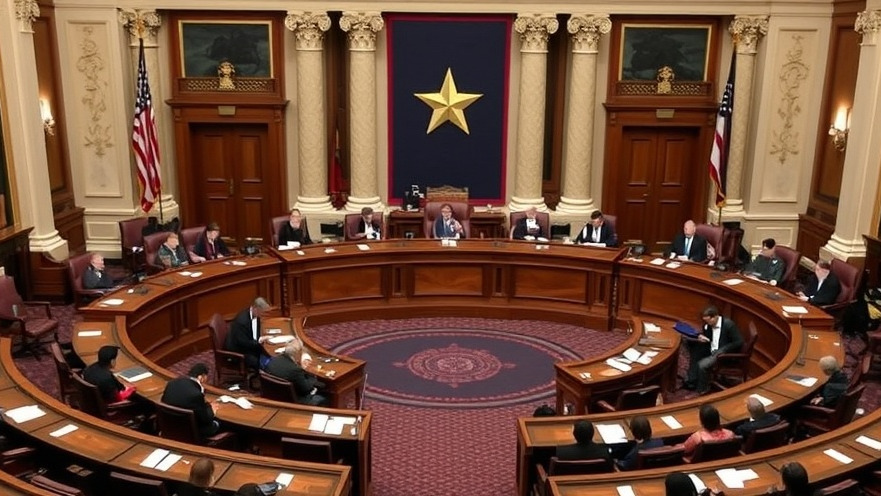
Texas Colleges Face Uncertainty Amid New Tuition Ruling
As Texas grapples with a major shift in education policy, state colleges are left in a tumultuous situation following a recent ruling that bans in-state tuition for undocumented students. This decision, which has sent ripples through the academic landscape, raises urgent questions about accessibility and equity in higher education for thousands of Texas residents.
Background: A Shift in Educational Opportunities
The background of this policy dates back a decade when Texas became one of the states allowing undocumented residents to qualify for in-state tuition fees. This landmark decision was rooted in the belief that all Texans, regardless of immigration status, should have equal access to education. Now, the reversal of this policy has ignited widespread concern about the future of these students and the financial burdens they may face.
Legal and Political Repercussions
The legal battle surrounding this issue showcases a contentious debate over immigration policy and education reform. Texas lawmakers have increasingly targeted immigration issues, influenced by a political climate that emphasizes stricter regulations. Governor Greg Abbott has voiced strong support for this ruling, aligning with a significant segment of the electorate who advocate for stringent immigration laws. However, educational leaders and advocates argue that such decisions jeopardize the workforce and the economic viability of Texas.
The Impact on Students and Families
For many undocumented students, losing access to in-state tuition means facing skyrocketing costs that could thwart their educational aspirations. According to estimates, tuition could increase by as much as 300% for students who had previously benefited from the in-state classification. This financial barrier poses a significant risk, pushing these students further away from opportunities for upward mobility and contributing to a less educated workforce in the long run.
Diverse Perspectives: Advocacy and Opposition
While some embrace the ban as a necessary step towards enforcing immigration laws, others see it as a moral failure. Advocates for undocumented students urgently call for legislative action, emphasizing the socioeconomic contributions these individuals already make to Texas. They argue that promoting access to education benefits not just the students but the community as a whole, fueling economic growth through a more educated populace.
Future Predictions: What Lies Ahead?
Looking forward, the implications of this ruling could span beyond just education. Economically, Texas may face challenges if skilled labor shortages arise due to educational inequities. Without access to affordable education, younger generations may struggle to enter high-demand fields, thus affecting Texas's competitive edge in various industries, from tech to healthcare.
Actionable Insights for Texas Residents
For residents affected by this ruling, understanding your rights and potential alternatives is crucial. Students should explore scholarship opportunities aimed at undocumented individuals, as well as community-based resources that provide guidance on educational pathways. Texas colleges may also be drawing up contingency plans, so staying informed about institutional responses and advocacy movements can influence future decisions at both state and individual levels.
Conclusion: The Urgent Need for Dialogue and Action
In light of the implications of this tuition ban for undocumented students, it is essential for Texas to engage in open dialogue about immigration and education policy. Communities must come together to advocate for equal access to education, recognizing that the benefits extend far beyond individual students. As debates continue, informed action from residents can drive change at the legislative level and help shape a more inclusive future for all Texans.
 Add Element
Add Element  Add Row
Add Row 



Write A Comment